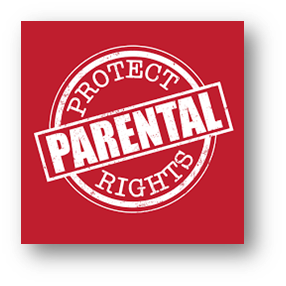Unpacking North Carolina’s Parental Bill Of Rights (SB49): A Call for Stronger Protections
By: Tina Wolfe, McDowell Matters
Part II in a III-part series on Issues Facing North Carolina Parents & Families
Since its enactment in August of 2023, the North Carolina Parental Bill of Rights, officially known as SB49, has garnered attention for its attempt to reinforce parental rights in the state.
Advocates argue that it’s a significant step toward recognizing parents as the primary educators and guardians of their children.
“Parents are the primary decision-makers with respect to their minor children, not their school,” said Sen. Amy Galey, a Republican representing Alamance and Randolph counties.
Critics of the law, vetoed by Governor Cooper and overridden by the North Carolina General Assembly, say the law is anti-LGBTQ+ and claim it is in “stark violation of federal civil rights law.”
Democrats have filed their bill in the House and Senate (March 11, 2024) sponsored by Sen. Michael Garrett which is in direct opposition to SB49.
Garrett argues that SB49 will increase bullying and put LGBQT+ kids in danger.
The Campaign for Southern Equality has also filed a Title IX complaint with the U.S. Department of Education and the U.S. Department of Justice against the North Carolina State Board of Education (SBE) and the North Carolina Department of Public Instruction (DPI).
The complaint alleges that the public schools are systematically “marginalizing lesbian, gay, bisexual, transgender, and queer (LGBTQ) students” and violating the civil rights protected by the Title IX of the Education Amendments Act of 1972.
The NC Values Coalition’s General Counsel Mary Potter Summa, J.D. presented a breakdown of what the law requires, where it falls short, and the work still needed.
Taking a closer look reveals potential gaps that need addressing to ensure robust protection for parental rights.
Understanding SB49: A Step in the Right Direction

Summa believes that SB49 is a commendable effort to reestablish parental rights. The bill emphasizes the fundamental principle that parents, not the government, are the foremost educators and caretakers of their children.
Key Provisions of SB49
SB49 explicitly outlines certain parental rights, emphasizing the responsibility of educational institutions and healthcare practitioners to involve parents in decisions affecting their children.
However, despite these provisions, the bill falls short in providing concrete legal mechanisms to enforce compliance.
Weaknesses in SB49: Gaps in Legal Recourse
While the intent behind SB49 is laudable, the bill’s weaknesses lie in the lack of robust legal mechanisms to ensure schools’ adherence to parental rights. Here are some significant shortcomings:
- Insufficient Penalties for Withholding Information
If an employee encourages or coerces a child to withhold information from their parent, the only penalty mentioned is possible disciplinary action. This lack of a stringent penalty raises concerns about the effectiveness of deterring such behavior.
- Limited Recourse in Case of Principal’s Non-Compliance
When a principal fails to provide requested information, parents can appeal to the school board, but they are barred from judicial review. This limitation in legal recourse potentially leaves parents without a viable option to enforce their rights.
- Unenforceable Decisions and Limited Remedies
In cases where a parental concern remains unresolved, the parent can request a hearing, but the decision of the hearing officer is unenforceable. Alternatively, taking the matter to court only offers the remedy of injunction relief, leaving parents with insufficient means to address violations effectively.
- Lack of Recourse for Teacher’s Non-Compliance
If a teacher fails to obtain parental consent for surveys or classes, there is no specified recourse. This oversight leaves a critical gap in addressing potential violations by educators.
- Weak Consequences for Healthcare Practitioners
When healthcare practitioners fail to obtain parental consent for certain medical services, the only consequence outlined is possible disciplinary action. Strengthening this provision is crucial to ensuring that healthcare decisions involving children always involve parental input.
- Limited Recourse if the School Board Refuses Compliance
If a school board refuses to comply with SB49, the state has no specified recourse. This lack of accountability at the institutional level raises questions about the enforceability of the bill.
A Call to Strengthen Parental Rights in North Carolina
Recognizing the gaps in SB49, the North Carolina Values Coalition urges parents, grandparents, guardians, and concerned citizens to act.
In light of the Democrat’s competing bill and the Title IX filing, it is imperative to contact legislators and insist on stronger language and more robust legal recourse to protect parents in case of non-compliance or violation of the Parental Bill of Rights.
 NC Values Coalition’s Proposed Solutions
NC Values Coalition’s Proposed Solutions
The organization advocates for the inclusion of a provision allowing parents to sue the school system for failure to comply with any of the provisions of SB49. This addition would empower parents with a tangible legal avenue to address violations and reinforce the effectiveness of the bill.
Know Your Rights: Resources for North Carolina Parents
To empower parents in North Carolina, it is crucial to be well-informed about their rights under SB49. Here are some authoritative resources to access for guidance:
Familiarize yourself with the actual text of the bill to understand your rights and the limitations.
- North Carolina Values Coalition (www.ncvalues.org): Stay updated on advocacy efforts and find resources to help protect parental rights.
- North Carolina Department of Public Instruction (https://www.dpi.nc.gov/) Access information on education policies and guidelines in the state.
- North Carolina Medical Board (https://www.ncmedboard.org/): Understand healthcare regulations and guidelines concerning parental consent.
What’s Next: A Collective Effort for Stronger Parental Rights
While SB49 marks a positive shift in recognizing parental rights, it is crucial to address the identified shortcomings.
Parents and concerned citizens must actively engage with legislators to advocate for stronger legal mechanisms that ensure the bill’s effective implementation.
By collectively voicing concerns and pushing for improvements, we can fortify parental rights in North Carolina and create a more secure future for our children.
____________________________________________
Tina is a long-time resident of McDowell County with a passion for helping business owners operate from a Christian, servant-led perspective. She is a follower of Christ, a wife, and a mother. As a business owner, marketing professional, and journalist, she has studied Christian business models and worked with business coaches to learn how to effectively operate in a worldly business environment from a Godly perspective. She believes that when we dare to serve, we succeed in life, and business
____________________________________________
Read more great Christian news HERE.




 NC Values Coalition’s Proposed Solutions
NC Values Coalition’s Proposed Solutions




